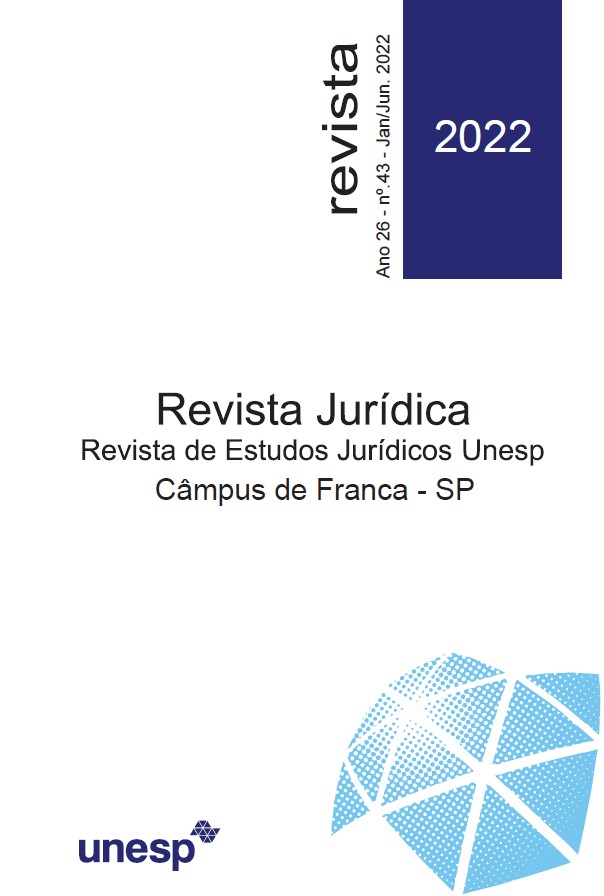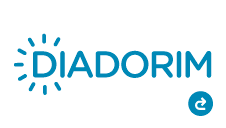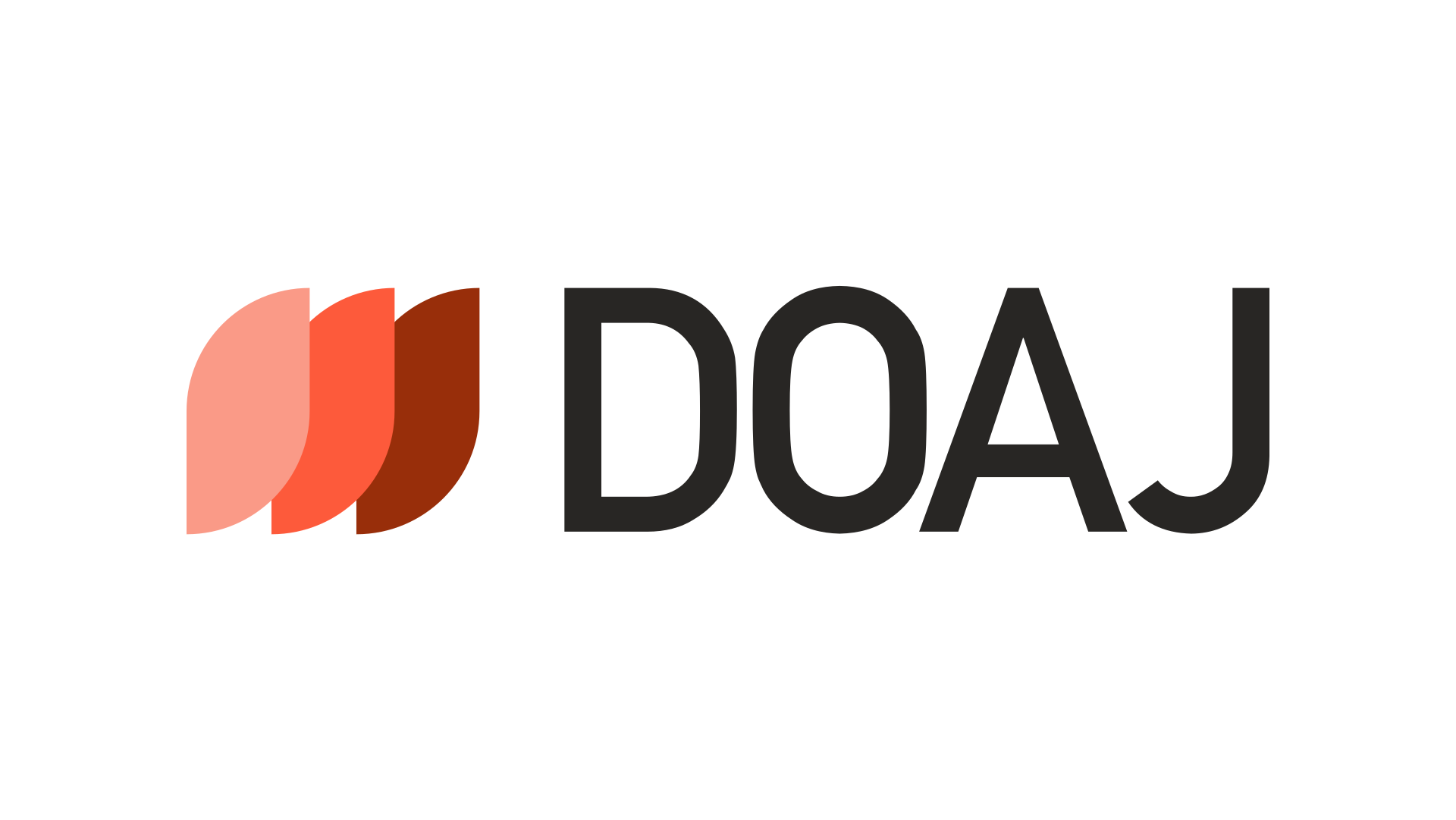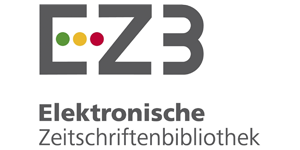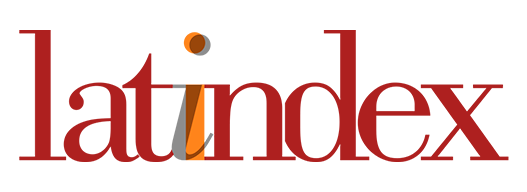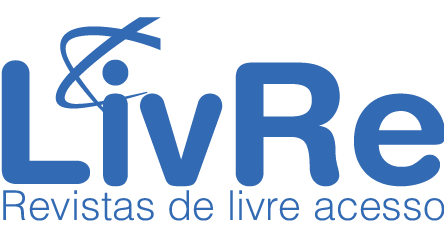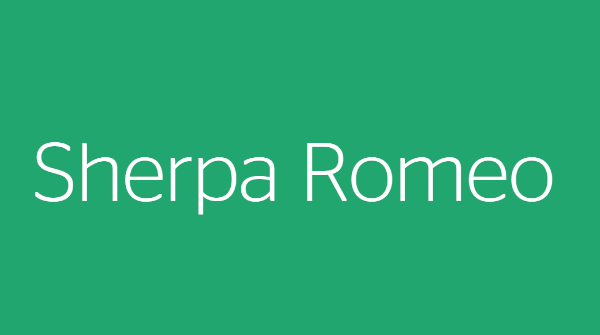REGULAÇÃO DA NANOTECNOLOGIA E NANOPLÁSTICOS DE UMA PERSPECTIVA GLOBAL
DOI:
https://doi.org/10.22171/rej.v26i43.3700Palabras clave:
Nanotecnologia, Nanomateriais, Nanoplásticos, Harmonização, Ciência Regulatória.Resumen
A nanotecnologia e, mais particularmente, os produtos e materiais baseados em nanotecnologia forneceram um enorme potencial para novas soluções para muitos dos desafios atuais que a sociedade enfrenta. No entanto, a nanotecnologia também é uma área de inovação de produtos que às vezes está se desenvolvendo mais rapidamente do que as estruturas regulatórias. Embora tenha havido um avanço significativo relacionado às abordagens analíticas para fins de rotulagem, bem como ao desenvolvimento de diretrizes de teste adequadas para nanomateriais e sua avaliação de segurança, ainda há necessidade de maior colaboração e consenso global no campo regulatório. Além disso, com as crescentes preocupações da sociedade sobre lixo plástico e pequenos detritos produzidos pela degradação de objetos plásticos espalhados, o impacto dos micro e nanoplásticos nos seres humanos e no meio ambiente é uma questão emergente. Apesar do aumento da pesquisa e das discussões regulatórias iniciais sobre micro e nanoplásticos, ainda existem lacunas de conhecimento e, portanto, uma necessidade urgente de ação. O texto busca demonstrar que ainda existem algumas incertezas e lacunas de conhecimento em relação às propriedades físico-químicas, comportamento ambiental e efeitos toxicológicos, especialmente porque os testes descritos na literatura internacional são muitas vezes feitos no início do processo de desenvolvimento do produto, e o material no produto final pode comportar-se de forma diferente. A harmonização de metodologias de quantificação e avaliação de risco de nanomateriais e nanoplásticos é medida que se faz necessária e será buscada neste artigo.
Descargas
Citas
ADDAMO, A. M., et al. Top marine beach litter items in Europe: a review and synthesis based on beach litter data. Luxemburg: European Union, 2017.
ALEXY, P. et al. Managing the analytical challenges related to micro-and nanoplastics in the environment and food: filling the knowledge gaps. Food Additives & Contaminants, n. 37, p. 1-10, 2020.
AMENTA, V. et al. Regulatory aspects of nanotechnology in the agri/food sector in EU and non EU countries. Regulatory Toxicology and Pharmacology, n. 73, p. 463-476, 2015.
BINTEIN, S. Proposal of ECHA (the European chemicals agency) for a restriction of intentionally-added microplastics and nanoplastics. GLOBAL SUMMIT ON REGULATORY SCIENCE 2019 ON NANOTECHNOLOGY AND NANOPLASTICS, 2019.
BOSNICK, K. Nanomaterials for reducing food-related waste. GLOBAL SUMMIT ON REGULATORY SCIENCE 2019 ON NANOTECHNOLOGY AND NANOPLASTICS.
BOUDREAU, M. et al. Differential effects of silver nanoparticles and silver ions on tissue accumulation, distribution, and toxicity in the Sprague dawley rat following daily oral gavage administration for 13 weeks. Toxicological Sciense, v. 150, p. 131-160, 2016.
BOVERHOF, D. R. et al. Comparative assessment of nanomaterial definitions and safety evaluation considerations. Regulatory Toxicology and Pharmacology, v. 74, p. 137-150, 2015.
BURGESS, R. Overview of ecological studies on the fate and effects of nanomaterials in the marine environment. GLOBAL SUMMIT ON REGULATORY SCIENCE 2019 ON NANOTECHNOLOGY AND NANOPLASTICS, 2019.
CHEN, H. Observations of nano-agrochemicals and nanoplastics in food and agriculture research. GLOBAL SUMMIT ON REGULATORY SCIENCE 2019 ON NANOTECHNOLOGY AND NANOPLASTICS, 2019.
CLIFFORD, C. Normative and pre-normative activities for nanomaterials measurement and characterisation. GLOBAL SUMMIT ON REGULATORY SCIENCE 2019 ON NANOTECHNOLOGY AND NANOPLASTICS, 2019.
COMANDELLA, D. et al. Quality of physicochemical data on nanomaterials: an assessment of data completeness and variability. Nanoscale, v. 12, p. 4695-4708, 2020.
CORRELA, M. et al. Analytical challenges and practical solutions for enforcing labelling of nanoingredients in food products in the European Union. In RUBIO, A. L. et. al. (orgs.) Nanomaterials for Food Applications. Amsterdã: Elsevier, 2019, p. 273-311.
CULLIS, P. Nanomedicines innovation network (NMIN): Canada's national centre of excellence in nanomedicines. GLOBAL SUMMIT ON REGULATORY SCIENCE 2019 ON NANOTECHNOLOGY AND NANOPLASTICS, 2019.
DANA, D. A. Can the law track scientific risk and technological innovation? The problem of regulatory definitions and nanotechnology. Faculty working papers, paper 113, 2010. Disponível em: http://scholarlycommons.law.northwestern.edu/facultyworkingpapers/113. Acesso em 13 jul. 22.
DE JONG, W. Safety assessment of nanomaterials as ingredients for cosmetic products. GLOBAL SUMMIT ON REGULATORY SCIENCE 2019 ON NANOTECHNOLOGY AND NANOPLASTICS, 2019.
DEVASAHAYAM, S. Nanotechnology and nanomedicine in market: a global perspective on regulatory issues. in MOHAPATRA, S. S. et. al. (orgs.) Characterization and Biology of Nanomaterials for Drug Delivery; Micro & Nano Technologies Series. Amsterdã: Elsevier, 2019, p. 488-522.
DE VLIEGER, J. Science-based regulations for non-biological complex drugs (NBCDs), nanomedicines and their similar. GLOBAL SUMMIT ON REGULATORY SCIENCE 2019 ON NANOTECHNOLOGY AND NANOPLASTICS, 2019.
DINDA, A. Challenges in the development of an Indian guideline for nanopharmaceuticals. GLOBAL SUMMIT ON REGULATORY SCIENCE 2019 ON NANOTECHNOLOGY AND NANOPLASTICS, 2019.
FESSARD, V. Genotoxicity of aluminium nanoparticles. GLOBAL SUMMIT ON REGULATORY SCIENCE 2019 ON NANOTECHNOLOGY AND NANOPLASTICS, 2019.
FRIEDERSDORF, L. Leveraging advances in nanotechnology and international collaboration to address emerging contaminants. GLOBAL SUMMIT ON REGULATORY SCIENCE 2019 ON NANOTECHNOLOGY AND NANOPLASTICS, 2019.
GAJANAN, K.; TIJARE, S. N. Applications of nanomaterials. Material Today, v. 5, p. 1093-1096, 2018.
GEISS, O. et al. Characterisation of food grade titania with repsect to nanoparticle content in pristine additives and in their related food products. Food Additives & Contaminants, vol. 37, p. 239-253, 2020.
GENCHI, G. G. et al. Smart materials meet multifunctional biomedical device: current and prospective implications for nanomedicine. Frontiers in Bioengineering and Biotechnology, v. 5, p. 80, 2017.
GIGAULT, J. et al. Current opinion: what is a nanoplastic? Environmental Pollution, v. 235, p. 1030-1034, 2018.
GILLILAND, D. What can the analytics of nanomaterials bring to the detection of nanoplastics? GLOBAL SUMMIT ON REGULATORY SCIENCE 2019 ON NANOTECHNOLOGY AND NANOPLASTICS, 2019.
GIUSTI, A. et al. Nanomaterial grouping: existing approaches and future recommendations. NanoImpact, v. 16, p. 100-182, 2019.
GOERING, P. Nanotechnology and medical devices: a regulatory science approach involving research, standards, and risk assessment. GLOBAL SUMMIT ON REGULATORY SCIENCE 2019 ON NANOTECHNOLOGY AND NANOPLASTICS, 2019.
GONZALEZ, M. OECD work supporting the regulation of nanomaterials. GLOBAL SUMMIT ON REGULATORY SCIENCE 2019 ON NANOTECHNOLOGY AND NANOPLASTICS, 2019.
GOTTARDO, S. et al. NANoREG framework for the safety assessment of nanomaterials. Ispra: European Union, 2017.
GREINER, R. Nano-sized delivery systems for food applications. GLOBAL SUMMIT ON REGULATORY SCIENCE 2019 ON NANOTECHNOLOGY AND NANOPLASTICS, 2019.
HANTORO, I, et al. Microplastics in coastal areas and seafood: implications for food safety. Food Additives & Contaminants, v. 36, p. 674-711, 2019.
HARTMANN, N. B. Risks of micro- and nanoplastics to humans and the environment. GLOBAL SUMMIT ON REGULATORY SCIENCE 2019 ON NANOTECHNOLOGY AND NANOPLASTICS, 2019.
HEALY, M. J. et al. Regulatory bioinformatics for food and drug safety. Regulatory Toxicology and Pharmacology, v. 80, p. 342-347, 2016.
HELD, A. Reference materials supporting legislation. GLOBAL SUMMIT ON REGULATORY SCIENCE 2019 ON NANOTECHNOLOGY AND NANOPLASTICS, 2019.
HERZBERG, F. Towards grouping of nanomaterials: lessons learnt and remaining challenges. GLOBAL SUMMIT ON REGULATORY SCIENCE 2019 ON NANOTECHNOLOGY AND NANOPLASTICS, 2019.
HODGE, G. et. al. New Global Frontiers in Regulation. The Age of Nanotechnology. Monash Studies in Global Movements Series. Cheltenham: Edward Elgar Publishing, 2009.
KAH, M. Nanopesticides and their deliberate application in agriculture. GLOBAL SUMMIT ON REGULATORY SCIENCE 2019 ON NANOTECHNOLOGY AND NANOPLASTICS, 2019.
KAISER, D. Nanotechnology standards: progress on GSRS16 needs and ASTM international committee E56. GLOBAL SUMMIT ON REGULATORY SCIENCE 2019 ON NANOTECHNOLOGY AND NANOPLASTICS, 2019.
KOLTSOV, D. Nanotechnology standards for industry, regulators and other stakeholders. GLOBAL SUMMIT ON REGULATORY SCIENCE 2019 ON NANOTECHNOLOGY AND NANOPLASTICS, 2019.
LAMPEN, A. Micro- and nanoplastics in food: oral uptake, toxicology and initial aspects of risk assessment. GLOBAL SUMMIT ON REGULATORY SCIENCE 2019 ON NANOTECHNOLOGY AND NANOPLASTICS, 2019.
LIMA DA CUNHA, C. E. Safe by design: creating nanomaterials of tomorrow. GLOBAL SUMMIT ON REGULATORY SCIENCE 2019 ON NANOTECHNOLOGY AND NANOPLASTICS, 2019.
LYNCH, I. Harmonising detection, quantification and impact assessment of micro/nanoplastics in freshwater environmental hotspots. GLOBAL SUMMIT ON REGULATORY SCIENCE 2019 ON NANOTECHNOLOGY AND NANOPLASTICS, 2019.
MCNAMARA, K.; TOFAIL, S. A. M. Nanoparticles in biomedical applications. Advances in Physics, v. 2, p. 54-88, 2017.
MECH, A et al. Nano or not nano? A structured approach for identifying nanomaterials according to the European Commission's definition. Small, v. 16, p. 200-228, 2020.
MECH, A. et al. The NanoDefine Methods Manual. Ispra: European Union, 2020.
MIERNICKI, M. et al. Legal and practical challenges in classifying nanomaterials according to regulatory definitions. Nature Nanotechnology, v. 14, p. 208-2016, 2019.
NALUBOLA, R. The FDA - Europe Office: our role and how you can engage with us. GLOBAL SUMMIT ON REGULATORY SCIENCE 2019 ON NANOTECHNOLOGY AND NANOPLASTICS, 2019.
NELSON, B. Challenges in standardising in vitro assays for the evaluation of nano-enabled drug products. GLOBAL SUMMIT ON REGULATORY SCIENCE 2019 ON NANOTECHNOLOGY AND NANOPLASTICS, 2019.
NGUYEN, B.; TUFENJI, N. Single particle-resolution fluorescence microscopy of nanoplastics. Environmental Science & Technology, v. 56, n. 10, p. 6426-6435, 2022.
OGAWA, K. Size-dependent toxicity of silver nanoparticles. GLOBAL SUMMIT ON REGULATORY SCIENCE 2019 ON NANOTECHNOLOGY AND NANOPLASTICS, 2019.
OOMEN, A. et al. Bionanotechnologie – een verkenning. RIVM Briefrapport 2019-0001. Bilthoven: Rijksinstituut voor Volksgezondheid en Milieu, 2019.
PATRA, J. K. et al. Nano based drug delivery systems: recent developments and future prospects. Journal Nanobiotechnology, v.16, 2018.
PEREZ DE LA OSSA, D. H.; BREMER-HOFFMANN, S. Nanomedicines: EU regulatory experience, challenges and regulatory research work. GLOBAL SUMMIT ON REGULATORY SCIENCE 2019 ON NANOTECHNOLOGY AND NANOPLASTICS, 2019.
POTTIER, A. NBTXR3, a first-in-class hafnium oxide nanoparticle radio-enhancer: journey from concept to clinical application. GLOBAL SUMMIT ON REGULATORY SCIENCE 2019 ON NANOTECHNOLOGY AND NANOPLASTICS, 2019.
PUCHNER, E. M. et al. Nanopores formed by DNA origami: a review. FEBS Letters, v. 588, p. 3564-3570, 2014.
RASMUSSEN, K. Developing OECD test guidelines for regulatory testing of nanomaterials to ensure mutual acceptance of test data. Regulatory Toxicology and Pharmacology, v. 104, p. 74-83, 2019.
RAUSCHER, H. et al. An overview of concepts and terms used in the European Commission's definition of nanomaterials. Luxembourg: Publications Office of the European Union, 2019.
RAUSCHER, H. et al. Identification of nanomaterials through measurements. Ispra: European Union, 2019.
RESEARCH AND MARKETS. World Nanotechnology Markets to 2025: Robust R&D Scenario Characterizes Nanotechnology Industry, 2020. Dispoível em www.prnewswire.com. Acesso em 14 jul. 22.
ROEBBEN, G. et al. Reference materials and representative test materials: the nanotechnology case. Journal of Nanoparticle Research, v. 15, p. 1455, 2013.
SCHELLEKENS, H. et al. The therapeutic equivalence of complex drugs. Regulatory Toxicology and Pharmacology, v. 59, p. 176-183, 2011.
SCHOONJANS, R. Guidance on the human and animal risk assessment of the application of nanoscience and nanotechnology in the agri/food sector. GLOBAL SUMMIT ON REGULATORY SCIENCE 2019 ON NANOTECHNOLOGY AND NANOPLASTICS, 2019.
SIMAK, J. Investigation of blood and endothelial toxicity of engineered nanoparticles using a PAMAM (polyamidoamine) dendrimer model. GLOBAL SUMMIT ON REGULATORY SCIENCE 2019 ON NANOTECHNOLOGY AND NANOPLASTICS, 2019.
STONE, V. et al. A framework for grouping and read-across of nanomaterials supporting innovation and risk assessment. Nano Today, v. 35, 2020.
SUMREIN, A. Safety assessment of nanomaterials under REACH. GLOBAL SUMMIT ON REGULATORY SCIENCE 2019 ON NANOTECHNOLOGY AND NANOPLASTICS, 2019.
THAKKAR, S. et al. Regulatory landscape of dietary supplements and herbal medicines from a global perspective. Regulatory Toxicology and Pharmacology, v. 114, 2020.
TONG, W. et al. Genomics in the land of regulatory Science Regulatory Toxicology and Pharmacology, v. 72, p. 102-116, 2015.
TOUSSAINT, B. et al. Review of micro- and nanoplastics contaminations in the food chain. Food Additives & Contaminants, v. 36, p. 639-673, 2019.
URMANN, K. et al. Aptamer-modified nanomaterials: principles and applications. BioNanoMaterials, v. 18, 2017.
WACKER, M. Translational nanomedicine how to predict clinical performance? GLOBAL SUMMIT ON REGULATORY SCIENCE 2019 ON NANOTECHNOLOGY AND NANOPLASTICS, 2019.
ZOU, S. Characterisation of nanomaterials and their cytotoxicity assessment. GLOBAL SUMMIT ON REGULATORY SCIENCE 2019 ON NANOTECHNOLOGY AND NANOPLASTICS, 2019.
Descargas
Publicado
Cómo citar
Número
Sección
Licencia
Derechos de autor 2023 Revista de Estudos Jurídicos da UNESP

Esta obra está bajo una licencia internacional Creative Commons Atribución 4.0.

